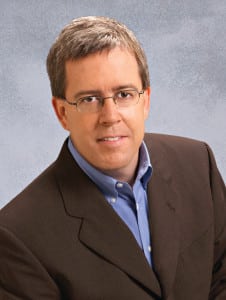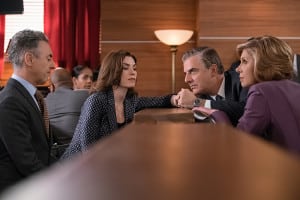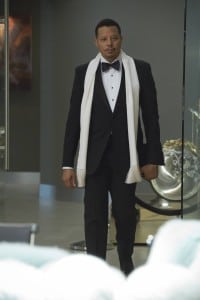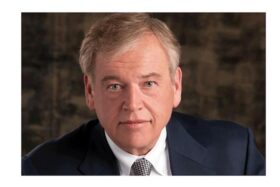Former CBS executive Jim McKairnes teaches and writes about Media. He lives in Los Angeles and Nashville.

Jim McKairnes.
“Why is so much of television so bad? I’ve heard many answers: demands of advertisers, competition for ever higher ratings, the needs always to attract a mass audience, the high cost of programs, the insatiable appetite for programming material. These are some of the reasons. Unquestionably these are tough problems not susceptible to easy answers. But I am not convinced that you have tried hard enough to solve them.”
A strong rebuke of and for TV programmers, given at an industry gathering. From one of the people charged with overseeing it. In 1961.
Fifty-five years ago, Newton Minow, chairman of the Federal Communications Commission (FCC) appointed just months earlier as part of incoming President John Kennedy’s New Frontier, asked the question at a Washington, D.C., gathering of the National Association of Broadcasters (NAB). It came in a speech entitled “Television and The Public Interest” – the last two words intended to be its take-away. But it was another phrase from his prepared remarks that ended up being that and more, as the lawyer who came to the room an outsider to be wary of, after first complimenting the station executives present (“You have my admiration and respect…yours is an honorable profession”), offered a blistering evaluation of their business.
“When television is good,” he said, “nothing – not the theater, not magazines or newspapers – nothing is better. But when television is bad, nothing is worse. I invite each of your to sit down in front of your television set when your station goes on the air and stay there for a day, without a book, without a magazine, without a newspaper, with a profit-and-loss sheet or a ratings book to distract you. Keep your eyes glued to that set until the station signs off the air. I can assure you that what you will observe is a vast wasteland.”
And this was 48 years before Snooki.
It became known as the Vast Wasteland speech. And soon after through present day, like boob tube (also dating to the 1960s), vast wasteland became a default broad-swipe for all that was wrong about television. Sometimes fairly; sometimes not. Seemingly lost amid its legend, though, has been the original premise behind Minow’s speech – simply that television, operating on public airwaves, owes the public the best it can offer. “Is there one person in this room,” he asked that Tuesday, “who claims that broadcasting can’t do better?” It’s still a good question to ask today.
When it is, two default answers tend to be given. One wags an accusatory finger at the explosion of reality programming as a way of saying “Evidently not” – that nonfiction shows have made TV as bad as bad can be. The reality of the reality genre, though, is while it has come to strangle prime-time like kudzu since 1999, it’s actually as old as the medium: The first recognized prime-time network television season (1946-1947) was made up almost entirely of nonfiction series, among them a cooking show, two quiz shows, a celebrity confessional, a dance show, and boxing. So when TV is bad, it’s not (necessarily) reality’s fault.
The second response invokes a breathless “Are you serious? Television has never been better!” along with an invocation of the Golden Age label – appropriating the term that has long been applied to the live-TV-drama-rich era of the 1950s. (Or is it misappropriating? Doesn’t something have to turn golden, after the fact, with age?)

CBS’ The Good Wife
Hard to argue: Right now TV is chock-full of vibrant landmark work from people behind and in front of the camera working at the peaks of their talents. But much of this output is not to be found on publicly owned (broadcast) television. It’s the make-up of premium-cable and streaming services – art-house fare made for smaller boutique outlets, the television equivalent of artisanal dishes or small-batch craft brews. So if we’re to consider TV not only not bad but rather quite good, credit would also go to these outside-the-mainstream efforts, some of which, technically, aren’t even on television.

NBC’s Little Big Shots
Throw out these low and high marks, and we’re left with what Minow’s question would likely be directed towards today: scripted TV series that, in whole or in part, can be called meh. Comedies that aren’t particular funny. Dramas that aren’t particularly compelling. Movies that aren’t particularly interesting, and specials that aren’t particularly special. With notable exceptions (The Good Wife, American Crime), there’s a shortage of compelling storytelling.
Executives from the major broadcast networks unveiled their new fall programming in New York last week, the best of the best from another’s year’s development slate. Four months hence, we’ll see for ourselves which are the new Crazy Ex-Girlfriend or Little Big Shots or Supergirl or Empire or Quantico and which are the new Everything Else.
The TV business is populated with smart and talented people, working full bore in and for a challenging industry that has changed in ways no one – not Minow in 1961 nor Paley or Sarnoff or Farnsworth before him – could foresee, changing the world in the process. They’re to be respected for their achievements. But if the basics of broadcast TV – programming, advertising, televising – remain, so too does the basic question that was Minow’s: “Is there one person who claims that broadcasting can’t do better?”

Fox’s Empire
As for Newton Minow, now 90, it’d be a shame if his 1961 address were only to be remembered for that derisive two-word descriptor or for the hurt feelings it led to in some Hollywood circles, best or at least most cheekily illustrated by then successful sitcom producer Sherwood Schwartz, who a few years later (dis-) honored the official by christening a marooned shipwreck in one of his shows after him (S.S. Minnow, anyone?) The full speech is an impassioned defense of television, its employees, and its capabilities for bettering the world. It took on government censorship, questioned the efficacy and point of TV ratings, challenged TV viewers to demand what’s due them, emphasized the need for more educational programming, and proved prescient in its New Frontier-musings about a future of pay-TV and UHF. It even foresaw a future where TV networks risk losing their viewers by underestimating them. (TV watchers are, he reminded, “wiser than some of the broadcasters – and politicians – think.”)
But it all came wrapped in a caution that the programmers in the room “earn your bread by using public property.” That “you volunteer for public service, public pressure, and public regulation.” That television is, at the end, that public interest – the word-combination Minow himself, in a 2011 essay that commemorated the 50th anniversary of his speech, said he’d rather be remembered for. In front of the NAB 55 years ago, the FCC chairman defined the phrase by quoting the group’s then-president, former Florida governor Thomas Collins:
“Broadcasting to serve the public interest must have a soul and a conscience, a burning desire to excel, as well as to sell; the urge to build the character, citizenship, and intellectual stature of people, as well as to expand the gross national product.”
Minow summed up for the crowd: “Ours has been called the Jet Age, the Atomic Age, the Space Age. It is also, I submit, the Television Age. And just as history will decide whether the leaders of today’s world employed the atom to destroy the world or rebuild it for mankind’s benefit, so will history decide whether today’s broadcasters employed their powerful voice to enrich the people or to debase them.”
The Cynsiders column is a platform for industry leaders to reach out to colleagues, followers, and the public at large. In their own words and in targeted Q&As, columnists address breaking news, issues of the day, and the larger changes going on in the ever-evolving world of television, video and digital. Cynsiders columns live on Cynopsis’ main page and are promoted across all daily newsletters. We welcome readers’ comments, queries, and column ideas at [email protected].






